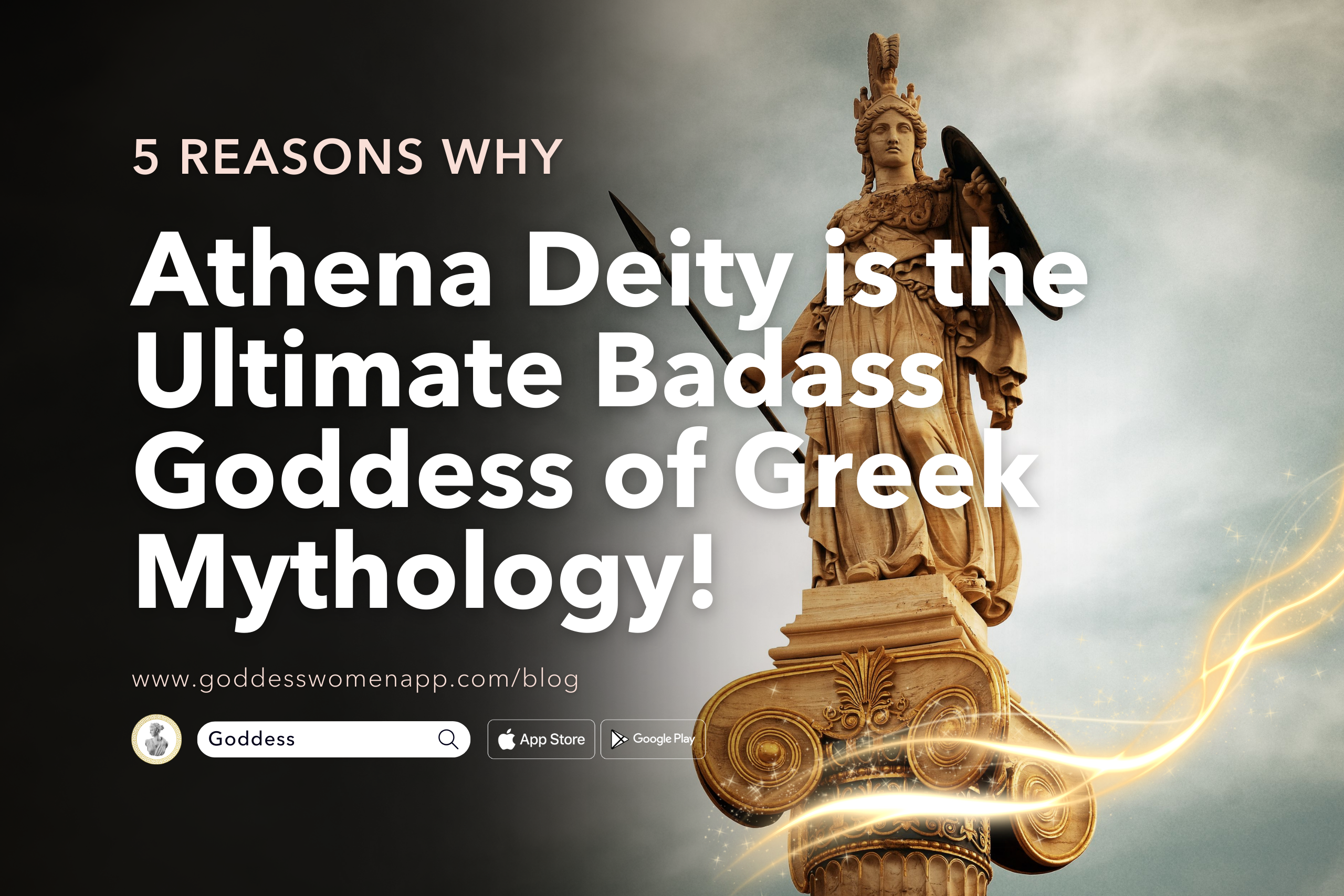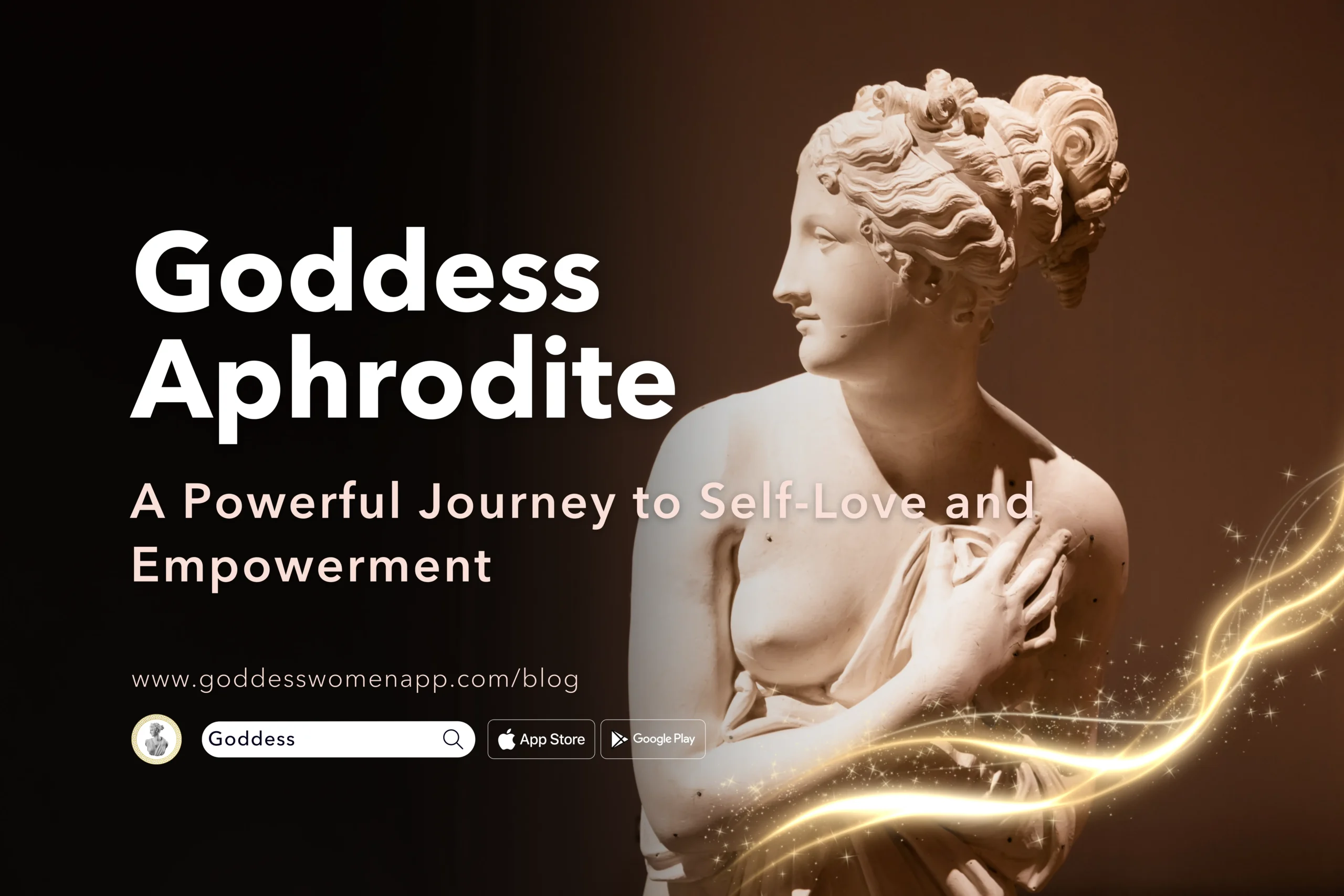Table of Contents
Introduction
In the pantheon of Greek mythology, few deities stand out quite like Athena deity, the goddess of wisdom, war, and strategy. Known to the ancient Greeks as Pallas Athena, she embodied the intellectual and civilized side of war, far removed from the mere blood lust personified by Ares, her counterpart. Athena’s domain was vast, stretching across the Athenian Acropolis to the heights of Mount Olympus, marking her as a central figure in the lore and daily life of ancient Greece.
The miraculous birth of Athena, born fully armored from Zeus’s forehead after he swallowed Metis, her pregnant mother, symbolizes her readiness for both battle and wisdom from her very inception. Unlike other Olympian gods, her birth story emphasizes strategic thinking and divine form, setting her apart as a pre-Hellenic goddess reborn into the Greek ethos. Athena’s virginity further marks her as a figure of sexual modesty and independence, steering clear from the distractions of love to focus on her roles as the patron goddess of Greek cities, the warrior goddess of ancient Greece, and the protector of heroes and civilizations.

As Athena Polias, she guided Greek heroes like Hercules and Odysseus through their quests, offering not only her wisdom but also her military prowess. Her strategic guidance was pivotal in events like the Trojan War, showcasing her role not only in Homeric hymns but also in the early myths that shaped the understanding of divine and mortal realms. Athena’s contributions to Greek mythology extend beyond the battlefield; she is credited with inventing the olive tree, symbolizing wisdom and peace, and her offerings were central to the lives of young women and the city of Athens itself.
Athena’s influence was so profound that her presence was felt not only in the tales of ancient times but also in the very fabric of Athenian society, from the gleaming eyes of the Athena Parthenos statue to the silver coins that bore her image. This Olympian goddess, emerging from Zeus’s head, not just Zeus’s daughter but his intellectual equal, was a beacon of wisdom, strategic warfare, and the intellectual and civilized aspects of ancient Greek life. Her legacy, celebrated in temples across Greek cities and revered through the ages, positions Athena as not just a deity of ancient lore but as the ultimate badass goddess of Greek mythology.
In this blog post, we dive into the heart of why Athena, the virgin goddess and protector of ancient cities, stands unrivaled as a figure of wisdom, strength, and strategic brilliance in Greek mythology. From her unparalleled birth to her role in shaping the fates of Greek heroes and cities, join us as we explore the five reasons Athena deity is the ultimate icon of badassery in the ancient world.
1. Goddess of Wisdom and War: A Dual Force to Be Reckoned With
In the rich tapestry of Greek mythology, Athena deity stands as a testament to the ancient Greeks’ veneration for not just brute strength but the power of wisdom and strategic thinking. As the goddess Athena, she embodies a rare duality, merging the sharp intellect of the goddess of wisdom with the formidable prowess of a war goddess. This unique combination of attributes positioned her as an unparalleled mentor to Greek heroes and a master strategist in battles, a role that resonates through the annals of ancient Greece and the tales that have captivated humanity across the ages.
The Synthesis of Might and Mind
Athena’s domain, as Pallas Athena, spanned the breadth of human endeavor, from the ancient cities under her protection to the very heights of Mount Olympus, where she was revered among gods and mortals alike. Her divine form, born from Zeus’s head fully armed and ready for battle, symbolizes not just her martial capabilities but also her intellectual birthright. Unlike Ares, whose domain is driven by the chaos of mere blood lust, Athena represents the intellectual and civilized side of warfare, where strategic warfare and wisdom converge to form an indomitable force.
Athena Deity’s Guiding Hand in Heroic Sagas
The Homeric hymns and early myths teem with tales of Athena’s guidance to famed Greek heroes. From the strategic insights that steered Odysseus through his odyssey to the martial skills bestowed upon Hercules, Athena’s role transcended the battlefield. She was a beacon of strategic thinking, aiding heroes not with mere force but with cunning plans and sage advice, thereby shaping the fates of men and gods in her favor.
Patronage Over the Ancient World
Athena Polias, as the patron goddess, endowed the city of Athens and its people with the olive tree, symbolizing peace and prosperity but also strategic foresight in ensuring the city’s sustained welfare. Her influence permeated the Athenian Acropolis, standing as a guardian over the ancient Greeks and their endeavors. Athena’s offerings were not limited to the olive tree; as a pre-Hellenic goddess of foreign origin, she introduced the Greeks to essential skills and crafts, further embedding her legacy into the fabric of Greek culture.
Athena and the Trojan War: A Testament to Strategic Brilliance
During the Trojan War, Athena’s strategic brilliance shone brightly, guiding Greek heroes through the conflict with her wisdom and military prowess. Her involvement in the war, particularly her support for the Greeks, underscores her role as a warrior goddess whose intellect could turn the tides of battle, a theme that resonates deeply in the ancient texts that recount this epic saga.
Legacy of Wisdom and Warfare
Athena’s dual identity as both the virgin goddess and the embodiment of military superiority captures the essence of her divine form, one that combines sexual modesty with the ferocity of a warrior. In the realm of Greek mythology, she stands as a symbol of the balance between intellect and might, her gleaming eyes reflecting the depth of wisdom and the resolve of a warrior. Modern scholars continue to explore Athena’s significance, delving into her origins and the profound impact of her mythology on ancient and modern culture alike.
Athena, the goddess of wisdom and war, epitomizes the ancient Greeks’ reverence for the mind’s power alongside physical strength. Her strategic warfare, coupled with her mentorship of Greek heroes, cements her status as the ultimate badass goddess, whose legacy of wisdom, warfare, and protection endures as a beacon of strength and intelligence in the vast expanse of Greek mythology.
2. Born Ready: The Miraculous Birth of Athena
The birth of Athena is a tale woven into the very fabric of Greek mythology, illustrating not only the mystical origins of this Olympian goddess but also the profound symbolism her emergence into the world represents. Born from Zeus’s head, fully armored and ready for battle, Athena’s entrance into the pantheon was as remarkable as her influence on the ancient Greeks and their civilization.
The Prophecy and the Headache
The story begins with a prophecy foretold to Zeus, the chief god of the Greek pantheon, residing on Mount Olympus. It was said that Metis, the goddess of wisdom and Zeus’s first wife, would bear children more powerful than their father. To prevent this prophecy from coming to fruition and to maintain his reign, Zeus swallowed Metis while she was pregnant with Athena. However, the prophecy could not be so easily circumvented. Zeus was soon afflicted with an enormous headache, a pain so severe that it echoed through the halls of Olympus.
Athena’s Astonishing Emergence
In his agony, Zeus sought relief from Hephaestus (or Prometheus, by some accounts), the god of blacksmiths and craftsmen. With a mighty strike of his axe to Zeus’s head, Athena emerged, not as a helpless infant but as a fully formed, armored warrior goddess. This extraordinary birth from Zeus’s forehead symbolizes Athena’s inherent connection to wisdom and intellect—qualities she derives directly from her father, the king of the gods, yet presented in a form ready to engage in strategic warfare and protect her patrons.
Symbolism of Athena’s Birth
Athena’s miraculous birth holds deep symbolic meaning, reflecting her dual role as a goddess of wisdom and warfare. Emerging fully armed signifies her readiness and capability to protect and advise from the moment of her existence, embodying the perfect blend of intellectual prowess and military might. This event underscores her divine form and role as a pre-Hellenic goddess, emphasizing her independence and unique origin among the Olympian gods.
Her birth from Zeus’s forehead, rather than through a traditional maternal route, underscores her role as a virgin goddess, free from the bonds of marriage and motherhood, allowing her to focus her energies on her duties to the ancient Greeks, her wisdom, and her martial skills. It also highlights her direct lineage from Zeus, cementing her position as his favorite child and a key deity within the Greek pantheon.

Athena: The Patron of Ancient Greece
As Athena Polias, she became the patron goddess of Athens and other Greek cities, her wisdom and strategic thinking becoming pillars upon which these ancient societies built their values and achievements. The olive tree, her gift to the Athenian people, symbolizes peace and prosperity, further illustrating her protective and nurturing aspects towards the cities under her watch.
Athena’s emergence, clad in full armor from Zeus’s head, encapsulates her essence as a warrior goddess and a beacon of wisdom. This momentous event in Greek mythology not only signifies her readiness to assume her role among the gods and mortals but also highlights her unparalleled capabilities as a mentor to Greek heroes, a strategist in warfare, and a protector of civilizations. Her birth story is a testament to her strengths, character, and the eternal respect she commands in the realm of ancient Greek deities.
3. Protector of Cities: Athena and the Olive Tree
Among the myriad tales that form the bedrock of Greek mythology, the story of Athena’s contest with Poseidon for the patronage of Athens stands as a testament to her wisdom, strategic thinking, and her role as a protector of cities. This legendary competition not only highlights Athena’s ingenuity but also her deep connection to the ancient Greeks, particularly in her manifestation as Athena Polias, the guardian of the polis.
The Divine Contest
The contest took place on the sacred grounds of the Athenian Acropolis, a place where the gods themselves would witness the ingenuity of Athena and the might of Poseidon, the sea god. Both deities were keen to earn the favor of the city and its people, promising gifts that would significantly benefit the Athenians. Poseidon, wielding his trident, struck the earth and from the chasm emerged a saltwater spring, symbolizing his dominion over the seas and offering military prowess and the promise of naval superiority.
Athena’s turn followed, and with a calm demeanor that belied her strategic mind, she planted an olive seed in the fertile earth of Athens. It grew into an olive tree, symbolizing peace and prosperity. The olive tree offered food, oil, and wood—essentials for daily life and economic stability. This thoughtful gift showcased Athena’s wisdom and her intimate understanding of what the people truly needed.
The Olive Tree: A Symbol of Peace and Prosperity
The olive tree, bestowed by Athena, came to symbolize much more than a mere agricultural boon; it was a testament to the goddess’s foresight and her protective nature over the ancient cities under her patronage. It represented sustainable growth, peace, and prosperity, contrasting sharply with the transient and destructive power of Poseidon’s saltwater spring. The olive tree’s significance was deeply embedded in the cultural and economic foundations of Athens, symbolizing Athena’s lasting impact on the city and its inhabitants.
The significance of the olive tree extended beyond its immediate practical uses. It became a symbol of the city’s resilience, its ability to thrive in peace rather than through conquest. The olive branch, in particular, has endured as a universal symbol of peace, its origins deeply rooted in this mythological contest.

Athena’s Victory and Legacy
The gods adjudged Athena the winner of the contest, not only for the utility of her gift but also for the deep wisdom it represented. This victory cemented her status as the patron goddess of Athens, her name and essence forever intertwined with the city’s identity. The olive tree she gifted grew on the sacred rock of the Acropolis, a constant reminder of her protection and wisdom.
This story, rich in symbolic meaning, illustrates Athena’s role as a protector and benefactor of the ancient Greeks. Her strategic warfare was not limited to the battlefield; it extended into her foresight in providing the tools for a sustainable and peaceful civilization. Athena, through the gift of the olive tree, demonstrated her preference for intellectual and civilized solutions over brute force, a hallmark of her divine form and an embodiment of the ancient Greek ideals.
Athena’s victory in the contest with Poseidon was not just a triumph of wisdom over strength but a declaration of her enduring legacy as a warrior goddess, a patron of ancient cities, and a symbol of strategic thinking and peace. The olive tree, standing tall on the Athenian Acropolis, remains a powerful testament to Athena’s wisdom, serving as a beacon of prosperity and protection for Athens and symbolizing the enduring bond between the goddess and the city she cherished.
4. Mentor of Heroes: Athena’s Role in Heroic Myths
In the pantheon of Greek mythology, Athena’s identity as the goddess of wisdom and war merges seamlessly with her role as a mentor to some of the most celebrated heroes of ancient Greece. Her guidance, infused with strategic wisdom and military prowess, was instrumental in the success of heroes such as Odysseus, Perseus, and Hercules. These legends, preserved in the Homeric hymns and the annals of Greek mythology, underscore Athena’s pivotal contributions to their quests, highlighting her as a divine form of inspiration and protection.
Athena and Odysseus: The Cunning Warrior
Perhaps the most renowned of Athena’s protégés is Odysseus, the hero of Homer’s Odyssey. Known for his wit and cunning, Odysseus found a kindred spirit in Athena, who guided him through his long and perilous journey home from the Trojan War. It was Athena who clothed him in a mist to protect him upon his return to Ithaca and who advised him on how to reclaim his throne. In every step of his journey, Athena’s strategic thinking and wisdom were evident, from the escape from Cyclops to the eventual defeat of the suitors. Her role in Odysseus’s story exemplifies her commitment to aiding those who rely on intellect and strategy rather than mere brute force.
Athena and Perseus: The Heroic Slayer
Perseus’s quest to slay Medusa, one of the feared Gorgons, also benefited from Athena’s guidance. It was Athena who gifted Perseus the polished shield, advising him to use it as a mirror to avoid Medusa’s petrifying gaze directly. This piece of advice was pivotal in Perseus’s success, showcasing Athena’s ability to provide practical, innovative solutions that combine her aspects of warrior goddess and patron of heroes. Her involvement with Perseus underscores her role in aiding those facing seemingly insurmountable challenges.
Athena and Hercules: The Supportive Protector
Even Hercules, known for his incredible strength and the arduous twelve labors he undertook, received Athena’s support. While Hercules’s brute force is often highlighted, it was Athena’s wisdom that often guided him through his tasks. Whether offering advice on how to accomplish his labors or assisting directly in battles, Athena was a constant divine ally to Hercules. Her support for Hercules further cements her status as a protector of heroes, emphasizing that true strength often requires the balance of physical power and wisdom.
The Significance of Athena’s Mentorship
Athena’s mentorship of these heroes is emblematic of her broader role within Greek mythology. She did not merely offer aid; she provided the strategic wisdom and moral support that allowed these heroes to navigate their trials successfully. Athena’s guidance was often the turning point in their stories, her divine intervention a testament to her investment in the success of those she deemed worthy. Through these interactions, Athena’s domain extends beyond the battlefield and the city-states; she becomes a central figure in the narrative of these legendary figures, showcasing the depth of her wisdom and her strategic mind.
Conclusion
Athena’s role in the lives of Odysseus, Perseus, and Hercules highlights her unparalleled position as a mentor of heroes in Greek mythology. Her involvement in their stories illustrates not only her martial acumen and wisdom but also her deep commitment to fostering the intellectual and civilized side of heroism. Athena, as the virgin goddess, patron of ancient cities, and mentor to the greatest of Greek heroes, demonstrates the ancient Greeks’ reverence for wisdom, strategic warfare, and the virtues of guidance and protection. Her legacy, as preserved through these mythic narratives, continues to inspire, embodying the ideals of mentorship, wisdom, and strategic thinking that transcend the ages.
5. The Virgin Goddess: Symbol of Integrity and Independence
Athena’s designation as one of the three virgin goddesses of Greek mythology, alongside Artemis and Hestia, is not merely a detail of her divine persona but a profound reflection of her independence, strength, and the purity of her wisdom. As Athena Parthenos, which literally means “Athena the Virgin,” her status is integral to understanding her role within the pantheon and her influence over the ancient Greeks.
The Emblem of Purity and Wisdom
Athena’s virginity is often interpreted as a symbol of purity—not in a mere sexual or physical sense but as an emblem of purity of wisdom and the strategic warfare that she governs. This aspect of her character underscores her distinction from other deities, whose narratives frequently entangle with romantic escapades and follies. Athena’s abstention from such entanglements signifies her complete dedication to the realms of knowledge, war strategy, and protection of her cities and followers. It positions her wisdom as untainted, focused, and entirely directed towards the greater good of those she protects and guides.
Independence and Divine Autonomy
Athena’s virginity also represents her independence and autonomy. Unlike many of her Olympian counterparts, her identity and power are not defined in relation to a consort or offspring. This autonomy allows Athena to move freely within the narratives of Greek mythology, intervening in the lives of heroes, influencing the outcomes of wars, and bestowing gifts of civilization, such as the olive tree, upon mankind. Her independence is a source of strength, enabling her to act solely based on her judgment and divine wisdom, further cementing her role as a patron goddess of strategic warfare and intellectual pursuits.

Athena’s Strength and Role as a Protector
Athena’s status as a virgin goddess also reinforces her image as a warrior goddess and protector. Her martial prowess and strategic mind are depicted as unencumbered by the distractions of romantic entanglements, allowing her to focus entirely on the art of war and the protection of her beloved cities and heroes. This focus is emblematic of her dedication to the welfare of the ancient Greeks, symbolizing a protector whose vigilance is constant and unwavering.
The Cultural Significance of Athena’s Virginity
In the cultural context of ancient Greece, Athena’s virginity and the values it symbolizes would have resonated deeply with the ancient Greeks, embodying ideals of purity, intellectualism, and independence. Her divine form, emerging fully armored from Zeus’s head, and her title, Athena Parthenos, celebrated in the magnificent temple, the Parthenon, on the Athenian Acropolis, are testaments to her revered status. These attributes and the reverence they inspired underscore the complex interplay between divinity, morality, and societal ideals in Greek mythology.
Conclusion
Athena’s role as a virgin goddess transcends the simple fact of her chastity, embodying a wide array of virtues that include purity of wisdom, independence, and unparalleled strength. Her virginity symbolizes her undivided commitment to the arts of war and wisdom, marking her as a deity whose influence is defined by strategic thinking and a protective zeal untainted by personal desires. In the tapestry of Greek mythology, Athena stands as a beacon of integrity, autonomy, and the intellectual and civilized side of warfare, her legacy enduring as a symbol of the ideals she represents.
Conclusion: The Enduring Legacy of Athena
Athena, the deity of wisdom and war, embodies a complex archetype within Greek mythology. Her narratives, interwoven with themes of intellect, independence, and strategic warfare, have transcended ancient texts to continue inspiring and intriguing modern audiences. As a virgin goddess, Athena represents purity of wisdom and the strength of independence, her divine story serving as a testament to the enduring power of intellect over might. Through her guidance of heroes, protection of cities, and the gift of the olive tree, Athena’s legacy is a rich tapestry that illustrates the virtues of wisdom, strategy, and foresight.
Athena’s multifaceted role within the pantheon—mentor, protector, strategist, and virgin goddess—offers a nuanced understanding of the divine feminine, challenging and expanding our perceptions of power and wisdom. Her enduring relevance speaks to the timeless appeal of Greek mythology and its capacity to reflect the breadth of human experience and aspiration.
As we reflect on Athena’s stories and the lessons they impart, we invite you, our readers, to explore the divine archetypes within yourselves. Are you guided by wisdom? Do you value independence and strategic thought? Perhaps, within the tapestry of your own life, there exists a thread of Athena’s spirit.
In the spirit of Athena’s wisdom and her journey through the myths of ancient Greece, we encourage you to embark on a journey of self-discovery. Take the archetype test on Goddess to uncover which Greek goddess you resonate with most. Are you an Athena, embodying wisdom and strategic warfare, or do you find kinship with another deity within the rich tapestry of Greek mythology?
Let Athena’s legacy inspire you to explore the depths of your own wisdom, strength, and independence. Discover which goddess archetype dwells within you, and let that discovery illuminate your path forward, enriching your life with the wisdom of the ancients.
Embark on this journey of discovery and embrace the wisdom, strength, and independence that lie within. Find out which goddess you are and let the timeless tales of Greek mythology inspire and guide you in your own life’s journey.





